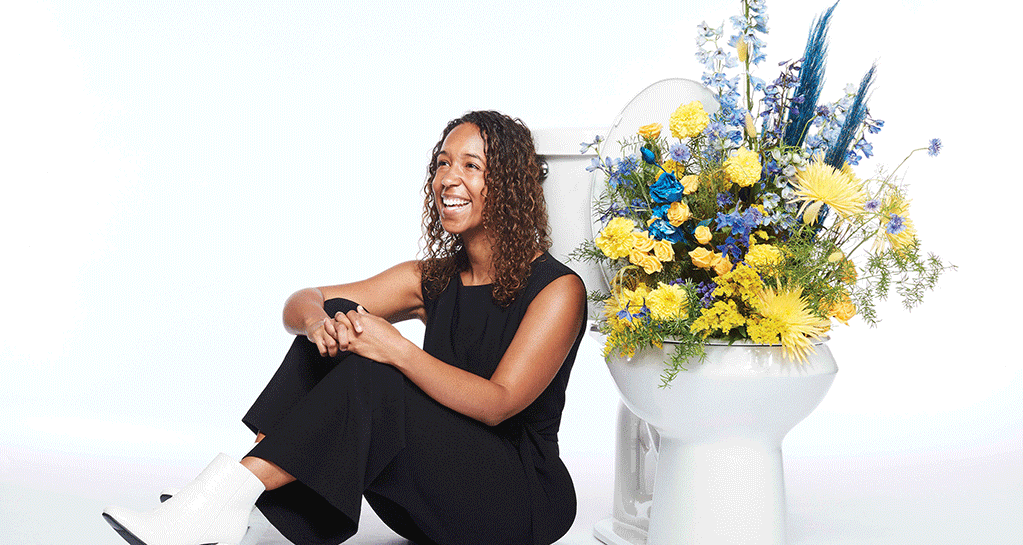Innovator: Jasmine Burton, CEO, Executive Director & Founder of Wish for WASH
By: Jennifer Herseim | Categories: Alumni Achievements

ID 14, CEO, EXECUTIVE DIRECTOR & FOUNDER: WISH FOR WASH
What role does design play in fighting inequality?
“Hey mom and dad, I’m going to design toilets.” Just a year before her declaration, Jasmine Burton had enrolled at Georgia Tech with an entirely different plan for her career—or at least one that did not involve bathrooms.
Things changed for Burton at a Georgia Tech Women’s Leadership Conference, where she learned that half the world, or 4 billion people, lacked access to safely managed sanitation, according to the World Health Organization. The problem also disproportionately affects women and girls. “Girls drop out of school when they reach puberty because their schools don’t have toilets,” Burton says. “I was shocked. We have all these wonderful technologies today, and yet, girls are dropping out of school because of this?”
At the time, Burton was searching for ways to utilize design for sustainable social impact. Toilet design became her gateway into that world.
In 2014, Burton was part of the first all-female team to win the InVenture Prize for the design of the SafiChoo toilet, a modular, low-cost toilet. After winning, her team had four weeks to transform their foam model into a working prototype before heading to Kenya to pilot the product at a refugee camp. "It was all-hands-on deck," Burton says. "So many of my classmates were in the studio helping us create a model that we could bring with us."
They pulled it off and her team brought 10 toilets on that initial trip. They worked closely with Sanivation, an organization co-founded by fellow Tech alumna and 40 Under 40 recipient Emily Woods.
Burton and her team continued refining the SafiChoo design. Before graduating, she founded Wish for WASH, an organization that seeks to amplify diverse voices and bring innovation to the WASH (Water, Sanitation, and Hygiene) sector. The team has since conducted iterative toilet research pilots in Sub-Saharan Africa and Atlanta-based resettled refugee communities.
She and her team are trying to change the taboo in sanitation and turn it into a call for action using empathy and dignity.
"We say, ‘Everybody poops,’ because this is a universal experience," Burton says. "No matter who you are, you likely know what it feels like to need a toilet and not know where one is."
One of the United Nations Sustainable Development Goals is universal access to clean water and sanitation by the year 2030, but the world is far from achieving that goal. Burton believes the change will come from changing who is part of the conversation. “It’s beyond the toilet, it’s about whose voices are heard in the process,” she says.
That starts with a diverse, interdisciplinary team and continues with empathic design, or acknowledging that the person who is using the product should be driving the decisions.
“When the end-users are not included in the creation of new sanitation systems, there are case studies where ceramic toilets are used like flower pots because the purpose and supply chain of the toilet were not based on local needs,” Burton says. “Empathic design is rooted in people understanding the end user’s values and aspirations and co-creating with them rather than for them.”


